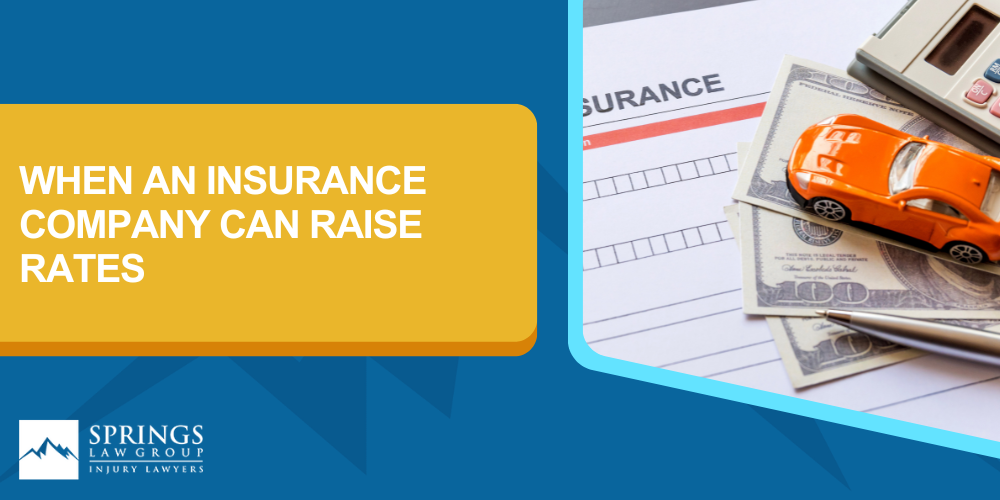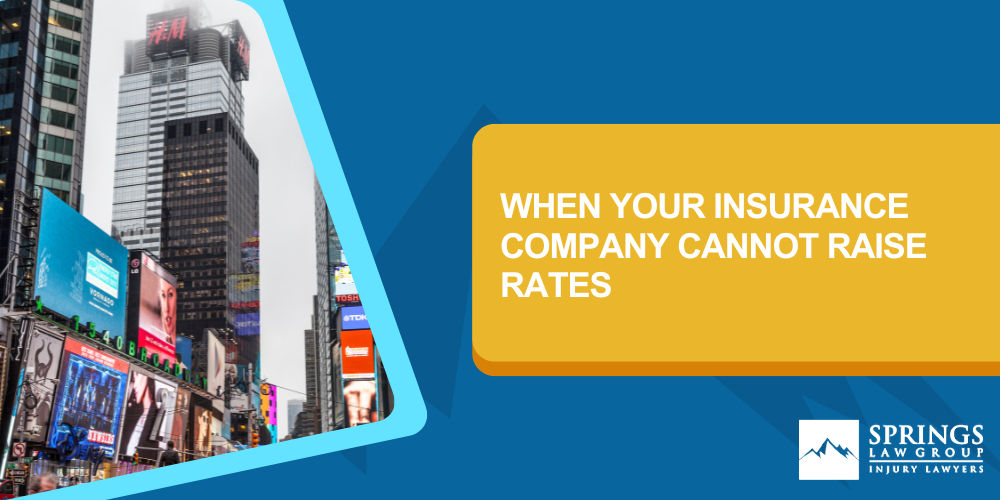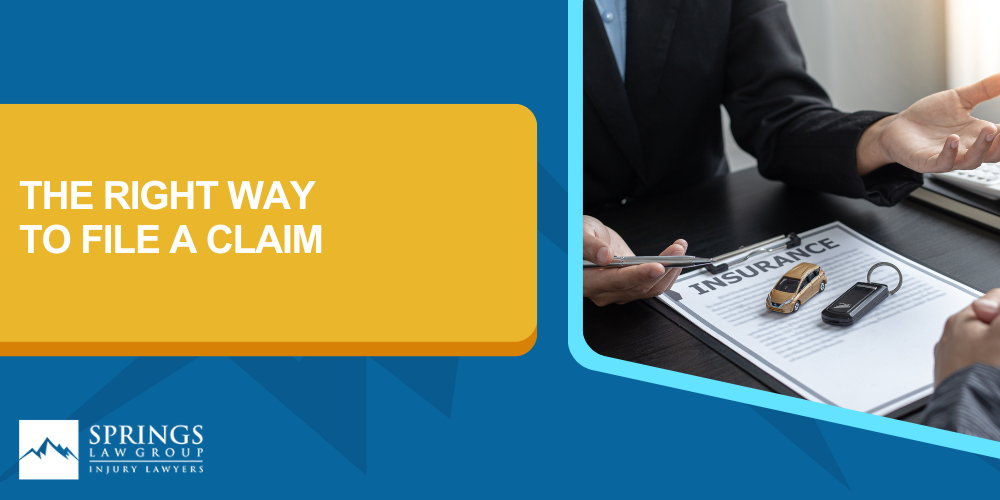Will My Insurance Rates Go Up After a Car Accident?

This is perhaps one of the most common and frustrating questions for many injury victims who’ve been involved in a car accident. On one hand, you may be completely innocent and the other driver caused all of the harm. Yet, on the other hand, you are still a statistic, and the insurance company can look at your accident as a potential sign that you are a higher risk. For this reason, most of the time, insurance companies can raise your rates for just about any reason they want. There are, however, a few very important exceptions in Colorado.
When an Insurance Company CAN Raise Rates
To better understand when and how an insurance carrier can increase premiums, it’s important to consider how insurance actually works. Insurance, at its core, is pooled risk. It involves spreading risk over many people. The larger the pool, the more you can spread out that risk. So insurance companies may insure hundreds of thousands of people in a state. The insurance companies play the odds. There’s a particular statistical chance that there will be a certain number of injuries and losses, and the insurance company needs to set its rates high enough to cover all those losses while remaining low enough to be competitive.

Therefore, an insurance company has wide latitude in charging rates to the public. After all, if someone doesn’t like the rates, they can simply go elsewhere. So, insurance companies can raise rates for these reasons:
- Increased number of claims in a specific region or neighborhood
- Your credit score declines
- You experience several claims in a short period of time
- You change your address
- You experience a life change (divorce, etc…)
- Your profession changes
- You take on high-risk behaviors
- You report driving more miles or driving to and from a higher risk area
When Your Insurance Company CANNOT Raise Rates

There are a few very limited exceptions under Colorado law where an insurer cannot raise premiums, cancel your policy, refuse to renew, or otherwise penalize you for any of the following reasons, assuming you were not at fault in any way:
- Claims for medical payments
- Claims for uninsured motorist benefits
- Claims for collision or comprehensive coverage
- Traffic citations without a conviction
- The mere fact that a blind person owns the vehicle
The Right Way to File a Claim
If you’ve been hurt in a motor vehicle crash, you need to file your claim the right way. This means preserving your rights under your own insurance policy, while aggressively pursuing fair and just compensation from the at-fault driver. At the Springs Law Group LLC, we can handle all aspects of your insurance claims so that you can focus on your physical recovery. You should never have to deal with insurance adjusters and medical collections while trying to heal. Let our office handle your claim each step of the way, and if the insurance company won’t treat you fairly, we can pursue justice through litigation and even take your case before a jury if necessary.

For help after a wreck, call the Springs Law Group LLC to schedule a free consultation today.
